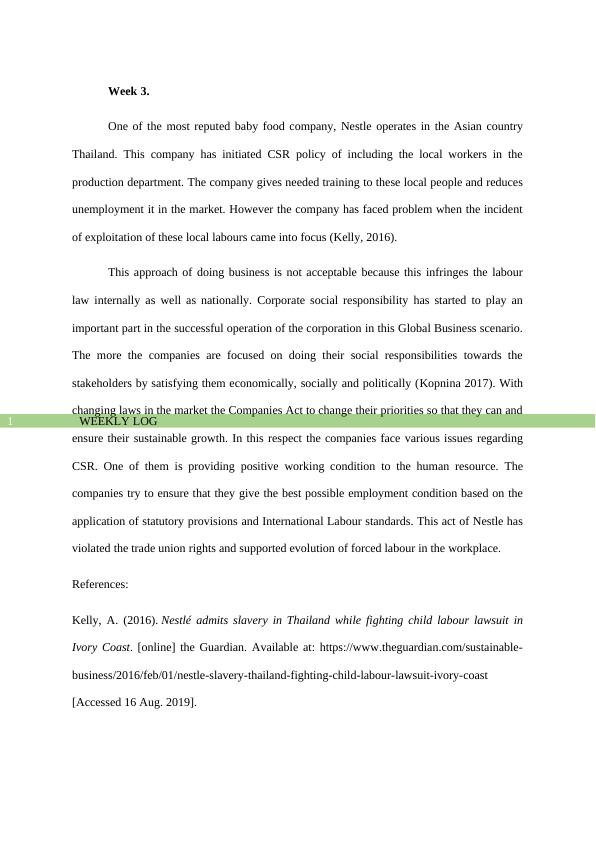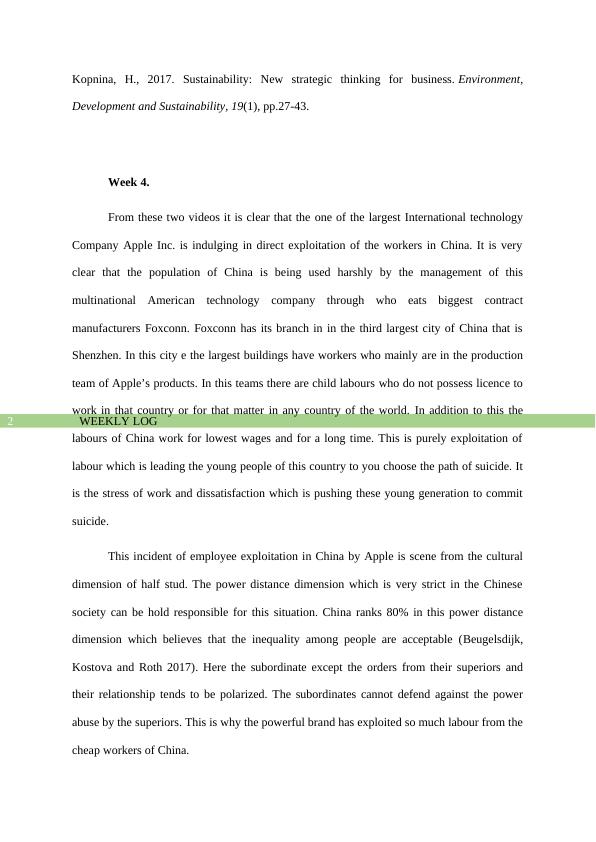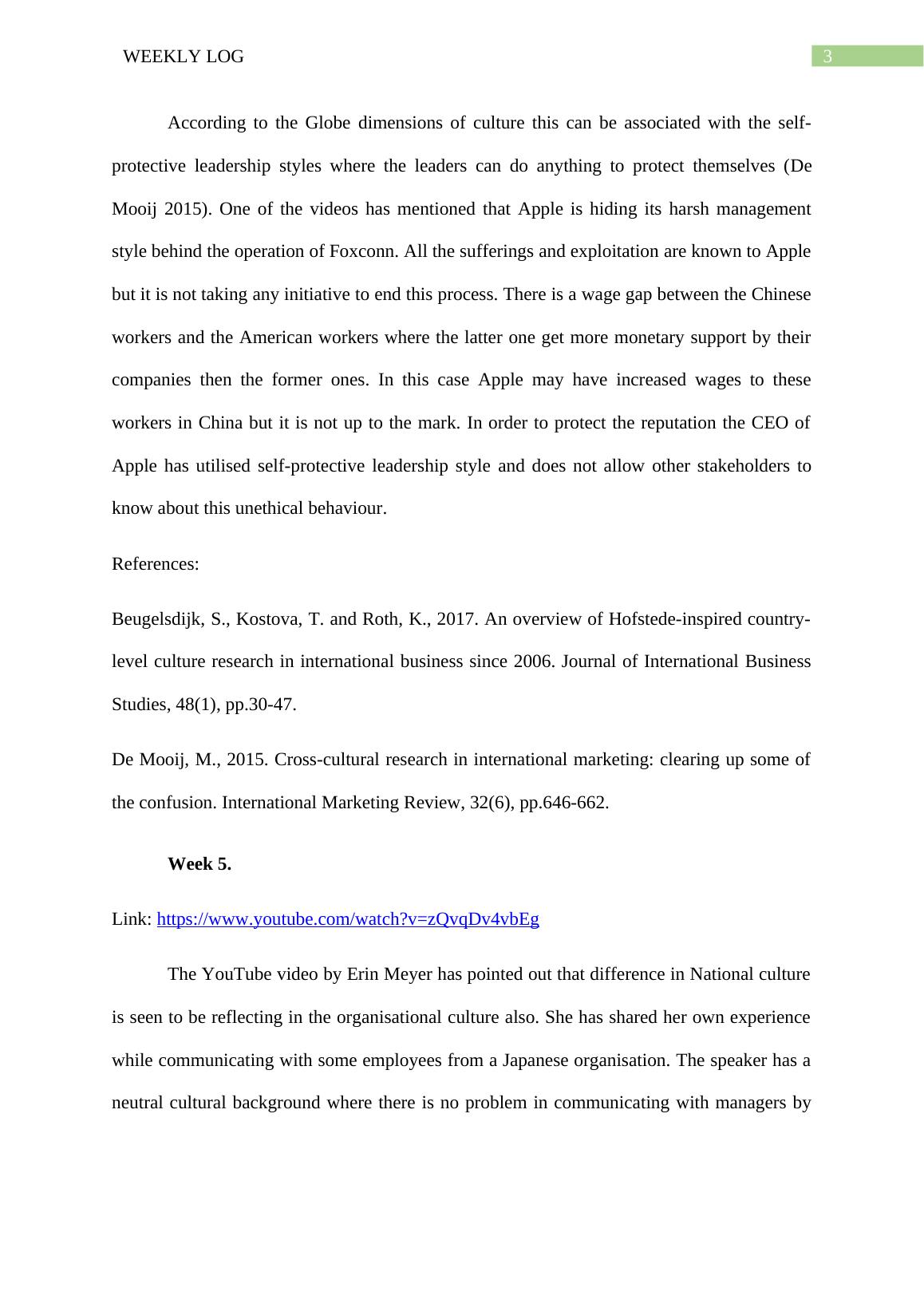Weekly Log on Corporate Social Responsibility, Cross-Cultural Communication, Negotiation and Leadership Models
Select any country in Asia or Oceania: Provide an example of a Corporate Social Responsibility (CSR) issue being faced by an international firm operating in that country. What CSR approach are they taking? Do you agree this is the appropriate approach? Why?
12 Pages3328 Words343 Views
Added on 2022-10-10
About This Document
This weekly log covers topics on Corporate Social Responsibility, Cross-Cultural Communication, Negotiation and Leadership Models. It includes discussions on Nestle's CSR policy, Apple's employee exploitation in China, cultural differences in business communication, Subway's localization strategy, Tata Steel's acquisition of Corus Group and Situational Leadership Theory.
Weekly Log on Corporate Social Responsibility, Cross-Cultural Communication, Negotiation and Leadership Models
Select any country in Asia or Oceania: Provide an example of a Corporate Social Responsibility (CSR) issue being faced by an international firm operating in that country. What CSR approach are they taking? Do you agree this is the appropriate approach? Why?
Added on 2022-10-10
ShareRelated Documents
End of preview
Want to access all the pages? Upload your documents or become a member.




